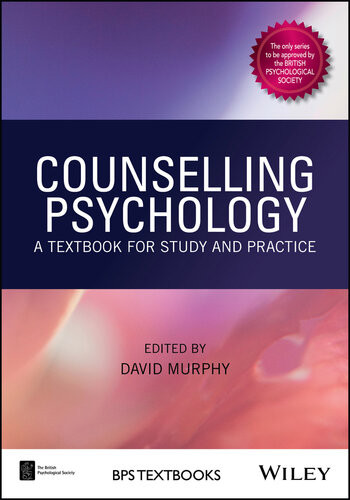

Most ebook files are in PDF format, so you can easily read them using various software such as Foxit Reader or directly on the Google Chrome browser.
Some ebook files are released by publishers in other formats such as .awz, .mobi, .epub, .fb2, etc. You may need to install specific software to read these formats on mobile/PC, such as Calibre.
Please read the tutorial at this link: https://ebookbell.com/faq
We offer FREE conversion to the popular formats you request; however, this may take some time. Therefore, right after payment, please email us, and we will try to provide the service as quickly as possible.
For some exceptional file formats or broken links (if any), please refrain from opening any disputes. Instead, email us first, and we will try to assist within a maximum of 6 hours.
EbookBell Team

4.7
86 reviewsA complete introduction to the theory and practice of contemporary counselling psychology
An excellent resource for students at undergraduate or graduate level, Counselling Psychology: A Textbook for Study and Practice provides valuable insights into the key issues associated with theory and practice in this field. The contributors represent a diverse array of approaches, reflecting the rich diversity within the area, and care is taken to avoid favouring any one approach. The book begins with an overview of the historical and philosophical foundations of counselling psychology, before taking a detailed look at major therapeutic approaches and exploring issues associated with specific client populations, ethics, research design, and more. In particular, the text seeks to explain how counselling psychology differs from and informs other areas of contemporary applied psychology. The result is an engaging balance of the personal and academically rigorous, presented in a highly accessible format.
• An authoritative introduction to and key issues involved with the theory and practice of counselling psychology for students and practitioners at all levels
• Considers all major approaches to psychotherapy including existential, person-centered experiential, psychodynamic, and cognitive-behavioural
• Explores issues commonly encountered when working with specific client groups including children, people with intellectual disabilities, and emergency trauma victims